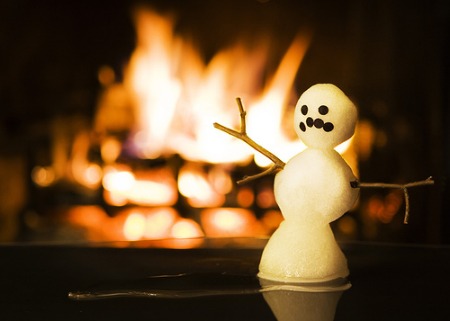Cheap heat: save money with around-the-house heating tips
Simple cheap heat tips that can shave off a big chunk of your heating bills.
Quality Services
Where do you need services?
 As we continue to chug through the aftermath of the Great Recession, the importance of saving dollars on everyday needs is multiplied. While most home improvement projects will earn your investment back over time, there are several smaller and less costly cheap heat changes you can make around the house that reap immediate benefits.
As we continue to chug through the aftermath of the Great Recession, the importance of saving dollars on everyday needs is multiplied. While most home improvement projects will earn your investment back over time, there are several smaller and less costly cheap heat changes you can make around the house that reap immediate benefits.
Turn down the heat
It seems so simple and it is--turn down your thermostat. For every degree you reduce your heat, you can save about 3 percent per month on your heating bill. But when the weather outside is freezing, the last thing you want to do is come home to a cold house.
The easiest fix to overcome this is to simply wear a pair of socks around the house, or to invest in some house slippers. About 15 percent of your body heat can be lost through bare feet. A nice sweater, robe, or fleecy blanket will also help cut the costs.
Also, don't heat rooms you don't use. Closing the heating vents in low traffic areas diverts the heat to the rooms that are used. Close closet doors--clothes don't need heat.
High efficiency furnaces will also save money on heating expenses. Furnace efficiency is measured in Annual Fuel Utilization Efficiency (AFUE), which calculates the percentage of burned fuel that is turned into heat. A furnace with 90 percent AFUE is considered high efficiency, and while they may be more expensive to install at first, the savings on heating bills will pay off the additional cost.
Cheap heat workarounds may not be enough. Connect with an HVAC contractor! Receive heating estimates within seconds!
Weather-proof your home
Another way to reduce heating bills is to reduce the amount of heat that escapes your home. New door sweeps will keep heat from escaping under the doors. Plastic window insulation keeps air from escaping drafty windows, and provides an air buffer that also keeps your house warmer. If you have a fireplace, be sure that the damper is shut tightly when it's not in use.
Windows
Energy efficient windows will also reduce bills. Double paned windows add an extra layer of air for insulation, and help keep warm air from escaping. Energy efficient windows will save $100-$400 annually on heating bills, depending on your region.
Energy efficiency isn't only a winter concern. Planting trees near your house will provide shade, and keep your house about 10 degrees cooler during hot weather.
Siding
Energy-efficient siding will help insulate your home against the heat or cold, reducing the load on your furnace and lowering heating bills. One economical way to increase your insulation and decrease energy bills is the installation of foam-backed vinyl siding in your home. Foam-backed siding reduces the amount of air flow into your house, making it easier to keep warm. Insulating vinyl siding is a good choice, although fiber cement siding is becoming a popular choice for energy-efficient and environmentally-friendly siding.
Roofing
Just as much of your body heat escapes from your head, much of the heat in your home escapes through the roof, which is typically poorly insulated and not well-maintained. Additionally, in summer a home's temperature can be kept cooler by installing a reflective roof which absorbs less thermal energy from the sun. Upgrading or replacing your roof can make it more energy efficient and save you on heating bills.
Turn off appliances
Most home appliances do need to be left on at all times--no one wants food to rot in their refrigerator. However, a lot of appliances use up energy when you're not using them, and unplugging them will save on energy bills. However, by that same token, appliances that generate heat can curb the amount of heat you need to produce from a furnace.
Most VCR or DVD players have a power button, but few people use them. Turning them off will save more electricity than you think. The same is true for cell phone chargers, which are using electricity when plugged into the wall, even if your cell phone is not plugged into it.
Saving money around the Hhuse: the bottom line
It is often the small things in life that add up, including household expenses. Finding ways to cut costs without changing your lifestyle seems impossible. But implementing one or all of these cheap heat ideas can significantly reduce your household expenses.
Photo credit: Shutter Daddy via Compfight CC.

